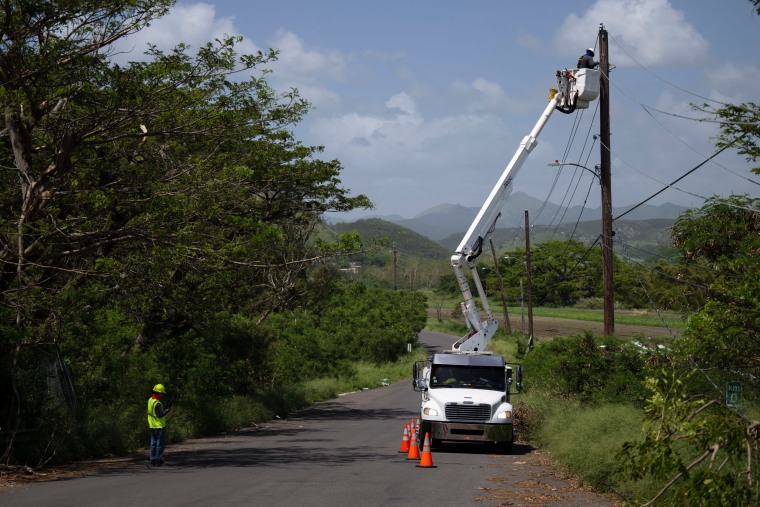While Puerto Rico formally exited bankruptcy last year, the nearly $10 billion in debt from the island’s power company remains unresolved.
The federal oversight board managing Puerto Rico's finances has reached an agreement with several bondholders who own part of the debt that will help reduce the amount owed by 80%, according to a news release Friday.
This is the latest attempt by the Financial Oversight and Management Board to end the lengthy process of restructuring the Electric Power Authority's debt, the largest of any U.S. public corporation when it declared bankruptcy in 2017.
Following months of negotiations, the board has filed a third debt-restructuring plan that would cut the power company's debt to $2.5 billion, excluding pension liabilities.
David Skeel, the board's chairman, said the plan provides "a fair recovery" for creditors without financially "overburdening the people of Puerto Rico."
The proposed plan is necessary for the power company to "remain a sustainable utility, continue critical investments, and complete the transformation of Puerto Rico’s energy system to provide reliable energy and support Puerto Rico’s economic growth and fiscal stability,” Skeel said in a statement.
The plan must be approved by a federal bankruptcy judge before it can go into effect.
If approved, it may also contribute to a rise in electric bills for Puerto Ricans, who already pay almost twice as much as customers in the U.S. mainland for unreliable electricity.
The debt-restructuring plan includes a "legacy charge" that would be passed down to consumers.
If the "legacy charge" is approved by Puerto Rico’s Energy Bureau, the independent agency regulating energy policies, power customers will face a 5% increase in their overall electricity bill, the board said in its news release.
On average, residential bills would increase by nearly $9 a month and commercial bills by $35.
Some 1.4 million customers may not pay the new charge if they consume less than 425 kilowatt-hours a month, the board said.
It's estimated that the average family in Puerto Rico consumes around 200 kilowatt-hours per month. In the U.S., the average monthly power consumption for a residential customer is about 886 kilowatt-hours, according to the U.S. Energy Information Administration.
Power customers on the island have already been subjected to at least seven electric rate increases over the last year.
Puerto Rico’s Electric Power Authority, a public corporation, declared bankruptcy in 2017 alongside more than a dozen local government entities as well as the public employee retirement system under the Obama-era Promesa law — which was specifically created to make up for Puerto Rico’s exclusion from the federal bankruptcy code. It put in place the federal financial oversight board to help restructure the debt in federal court.
This resulted in the biggest municipal bankruptcy in U.S. history.
Months later, Hurricane Maria ravaged Puerto Rico, devastating its electric grid and triggering the world’s second-longest blackout.
Most of the roughly 3,000 people who died in Maria’s aftermath died because of a lack of electricity and the ensuing interruptions in medical and other services.
The grid hasn’t yet been permanently rebuilt, so the patched-up grid still acts up, causing blackouts and brownouts when people least expect it.
The majority of the debt owed by Puerto Rico’s government agencies has already been restructured, except that of the power company.
“We hope that we will be closing not just the chapter but most of the book on the largest public sector bankruptcy in the United States,” Robert Mujica, the board’s executive director, said in a meeting with reporters.

